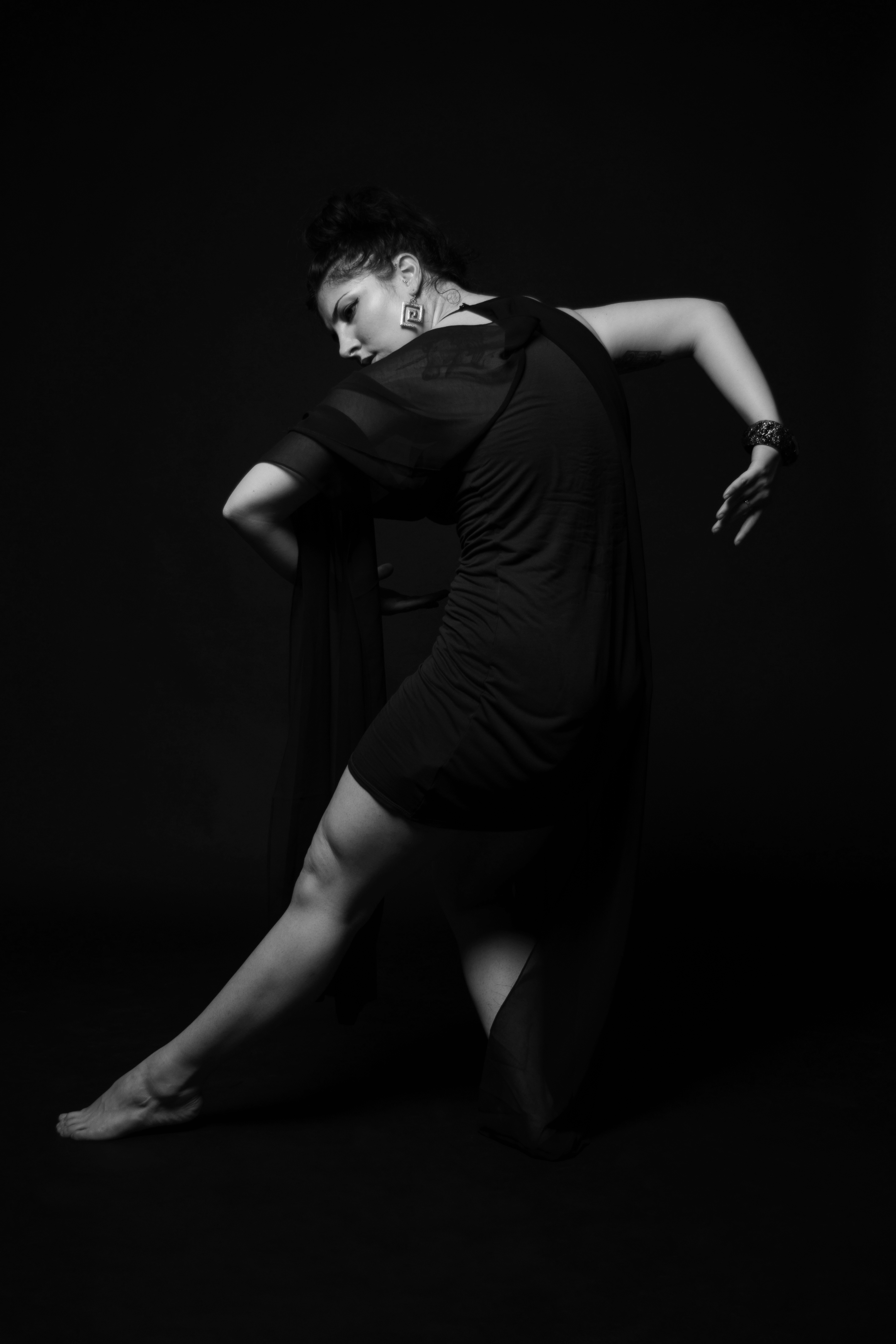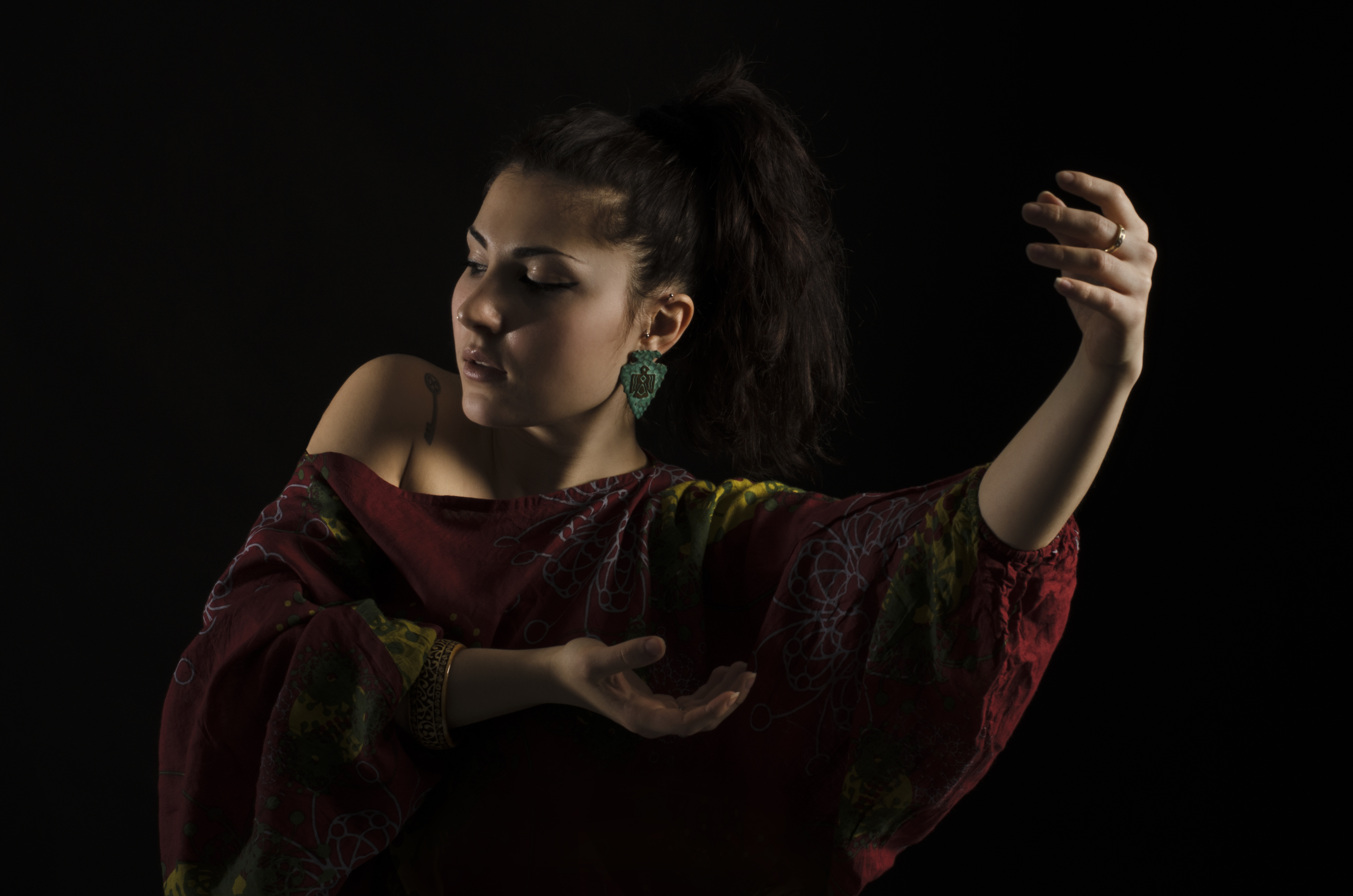We sat down with fusion-ista choreographer and mover, Nicoletta Key Bonanni, to discuss her practice, her company Movement Deco‘, cross-cultural communication, movement appropriation and the intimate sources of inspiration essential to her growth as an artist.
Q: Who are your biggest inspirations?
A: On a personal level, my grandmother has been an incredible source of inspiration. I think being alive during World War II, experiencing traumas and personal dramas, battling for her rights as a woman and still being able to live her life with a smile and with curious eyes. That is surely inspirational?
Germaine Acogny, the mother of African contemporary dance, is a big inspiration too. Her work; her incredible career; her spirit. Resilience inspires me. The ability to mould, battle, change, spring back into shape, recover and keep moving is of incredible inspiration to me as human and as an artist.
Q: Some would describe your style and work as fusion-based. How important do you think it is to use dance to encourage cross-cultural communications?
A: I think it is essential to use dance and art forms in general to encourage and spark cross-cultural conversations. In particular, to fully encourage those conversations without imposing a view-point, Westerners need to fully invest in ways to unlearn their modes of thinking and feeling. In doing so, it will allow other cultures to introduce them to their thinking-modes and teach them their ways to access the world.
By sitting back and listening actively and trying to make sense of that information we will be able to communicate effectively and to bridge the gaps that now make us feel so distant.
Q: Dance is a feeling, but it can also become politicised as the concept develops. The irony is, as the piece becomes more complex, you can sometimes lose that initial reason why you decided to create the piece. When making work, how do you ensure you really get to the essence of what you want to convey?
A: If my performance moved someone in the audience or if I have ignited the curiosity to look something up on the internet; if I made someone reflect, question, cry or laugh that means I have done a good job.
The piece can start with a feeling or one movement that you want to explore, but it can transform into something else. The important thing is to keep questioning why you are doing something. Even if the piece has many layers that only you and your dancers are able to fully understand, if the core of the piece is clear to you and to them, you will convey it in the final product. That is what people are going to experience and bring home with them.
We all need to find a way to engage with politics. My engagement with that is through my practice, my teaching, my choreographies. All of my work is full of political messages, but that has never been my starting point, only a consequence of what I am and what I intend to say.
Q: How do you feel when people try and make sense of your choreography?
A: It is interesting to read or speak to people about my work. I try to let go of my defensiveness for the baby I have created and fully open myself to people’s thoughts. It is not always easy.
I find it fascinating when people make precise stories in their heads about a piece they have never been part of. But that is dance’s beauty — it enables people to interpret what they want.

Q: There are some who might think certain dance styles should only be performed by people from that culture. There’s also a big debate on movement appropriation, especially twerking. What do you think?
A: Cultural appropriation is a huge thing and it is definitely something we all need to discuss as openly as possible. I cannot say that I believe certain dance styles should be performed only by people from that culture, because that indirectly would mean that I don’t believe in who I am as a human and as an artist. Although there are many layers to this debate, I think to encounter different cultures really can only add value to someone’s life.
When we decide to embrace parts of those cultures, we need to understand the values cultures give to costumes, rituals and languages.
We also have to understand that cultural appropriation really is the problematic possibility that a Western person appropriates something outside of his/her culture to use it for his/her own profit/benefit. The problem escalates when a non-Western identity is unable to do something that belongs to his/her heritage because they lack the privilege in society.
Dismantling those social hierarchies needs to happen within our system. However, being aware of them can shift the way Western culture approaches those situations, to be more conscious about their actions.
For example, twerking is only one aspect of complex cultural dances performed originally by women from Africa and the Caribbean. Taking that movement and hyper-sexualising and de-contextualising it from its source is dangerous. It takes away a culture’s value, richness and complexity and misconstrues its identity.
Q: How important is it for dancers to be taught a diverse range of dance styles?
A: It’s massively important. Nowadays there is high demand for diverse dancers. Dance styles are not so segregated anymore and there are so many conversations happening between styles, creating ‘cross-platforms’. Rich and diverse training means better longevity for dancers – choreographers are on a hunt for strong technical and versatile dancers!
Q: What has been your career highlights so far?
A: Receiving a residency with IRIE! dance theatre allowed me to start my own company Movement Deco’. From there, I had the space and time to create my first group piece, Prayers of Freedom – Can you see me? plus my solo FEMME (R)OME.
Q: What’s next for you?
A: Currently I am developing my solo FEMME (R)OME and, as with many dance artists, looking for funding and support. A short version of FEMME (R)OME was presented back in January at Havering Dance Festival. It is a very personal portrayal of my journey as a woman and as an immigrant in London, trying to live in a new world whilst falling in love with cultures outside of my own and using them as a tool to find myself. Hopefully I can perform it in England, Italy and Africa.
Then I wish to develop my practice in my country as well as internationally and work within dance and theatre in both social and professional settings!
Follow Nicoletta on Facebook: Nicoletta Key and Instagram: Nicolettakey
Words by Katie Hagan.
